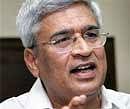
"The Prime Minister had asked the Walmart chief to go and convince the West Bengal Chief Minister on allowing FDI in retail trade. Bhattacharjee had then explained the party's stand (opposition) on the issue," CPI(M) General Secretary Prakash Karat told reporters here.
He said the Walmart chief had come to meet the Prime Minister in 2005 when the Left parties were supporting the UPA-I government from outside.
The CPI-M leader was speaking in the context of questions on the US diplomatic cables released recently by the WikiLeaks with one of them quoting a discussion between Bhattacharjee and then US Ambassador to India Timothy J Roemer on the issue of FDI in retail sector.
Responding to questions, he said Chief Ministers of the erstwhile Left-ruled states of West Bengal and Kerala had spoken about the party line on FDI during their interactions with American diplomats.
Indicating that the CPI(M) was not completely opposed to allowing FDI, he said the party did not want its entry into certain specific sectors like retail trade, mining and higher education. "In certain areas, FDI should not be there."
"FDI can be allowed keeping in mind that it improves our productive capacities, helps us in acquiring new technologies and generates employment. This stand of ours is part of our party programme", he said, adding that even the Parliamentary Standing Committee had opposed FDI entry in print media.
"Our leaders and chief ministers (with whom US diplomats had interacted) have spoken about the party stand on FDI," he said, adding that he would not go into the "interpretations" made by the US diplomats in the cables.
Karat even spoke about former Kerala Chief Minister V S Achuthanandan announcing that the then LDF government needed FDI in the state in sectors like IT, biotechnology and tourism.
He said the official US cables released by the Wikileaks had two aspects - one, factual information about the meetings these diplomats had with Indian leaders and the second, observations and interpretations made by them.
"We have to take their observations and interpretations with a pinch of salt. We need not accept them," Karat said.
To questions about the former National Security Advisor M K Narayanan's comments as mentioned in the released cables, he said the main trend of these cables have shown that "our government has been succumbing to American pressures... particularly on foreign policy (with the government) accepting the broad thrust of US policies.
"In the last 5-6 years, there has been continuous pressure and influence on our government and the political establishment," the CPI(M) leader said.
On the cables relating to the Indo-US nuclear deal and other foreign policy matters, he maintained that CPI-M's stand to oppose it totally evolved with the new developments which took place then.
"The CPI(M) came out in full opposition (to the deal) after the Hyde Act was passed in the US....You have to see our evolving positions at different times. We are not a static party. We have changed and updated even our party programme," he said.
Karat said CPI(M) leaders, in their interactions, had also criticised the US stand opposing the Iran-Pakistan-India oil pipeline.